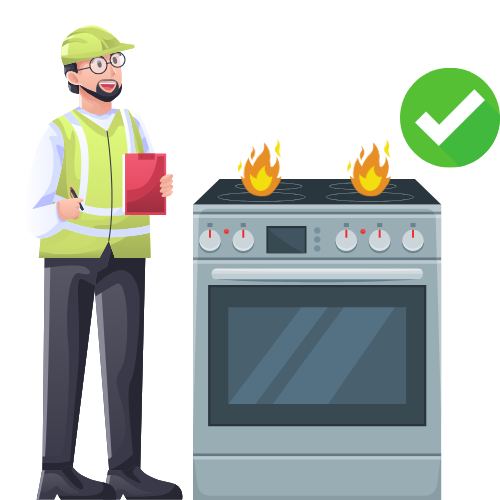
Pricing Plan
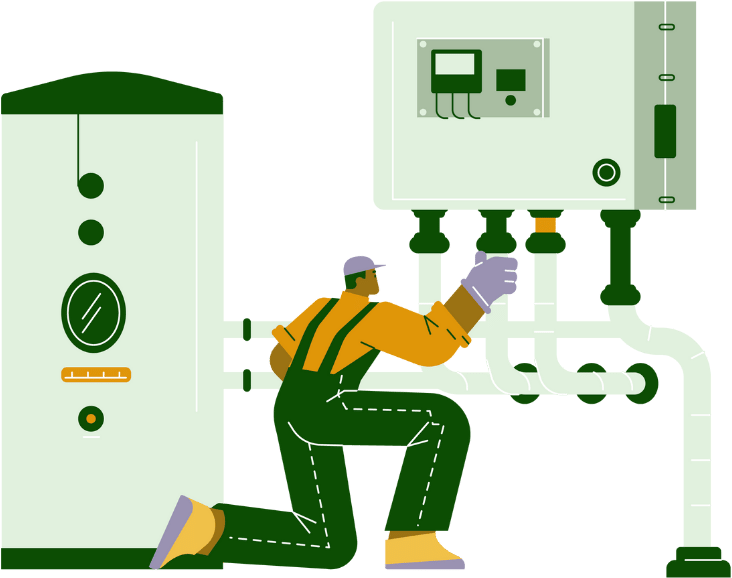
A Gas Safety Certificate, or CP12, is a mandatory document for landlords in the UK. It ensures that all gas appliances, pipes, and flues on their property are safe and meet the required standards. It includes a thorough inspection by a qualified engineer, who checks for gas safety compliance, records any defects found, and recommends actions. We’ll now explore why landlords need to obtain this certificate and what the certificate entails exactly.
Every landlord in the UK must obtain a Domestic Gas Safety Certificate (CP12) to comply with legal requirements guaranteeing the safety of gas appliances, fittings, and flues within rented properties. This certificate is vital for several key reasons:

Let’s clarify a common question: Is a CP12 the same as a gas safety certificate? Indeed, the term CP12 is simply another name for a gas safety certificate, used primarily within the trade. We’ll explore how this certificate guarantees gas installation, appliance compliance, and safety.
Many homeowners wonder whether a CP12 is identical to a gas safety certificate. Indeed, they are the same:
Landlords must first select a Gas Safe registered engineer to secure a gas safety certificate in the UK. This guarantees that the inspection is conducted by a professional accredited to assess the safety of gas installations and appliances. We’ll guide you through the step-by-step process to guarantee compliance and safety in your rental properties.
Steering through the requirements for obtaining a Domestic gas safety certificate in the UK can initially seem intimidating. Still, by following a structured process, landlords can secure compliance efficiently. Understanding and adhering to compliance regulations, including the frequency of inspections and tenant responsibilities, is vital. Let’s break down the steps:
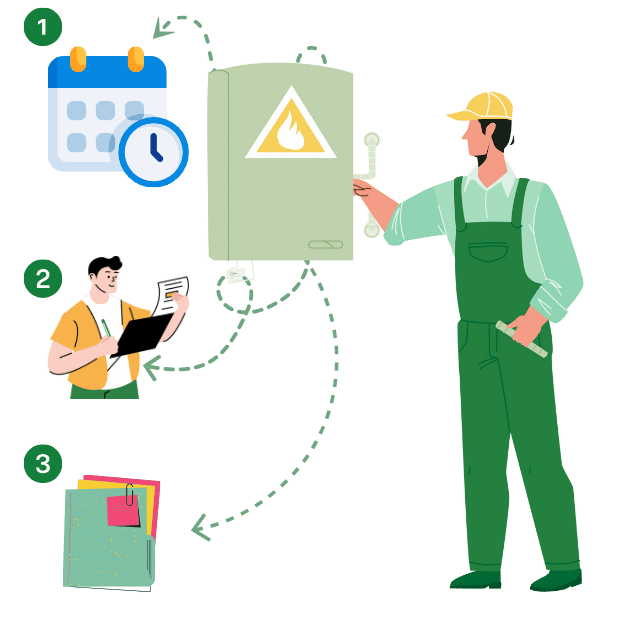
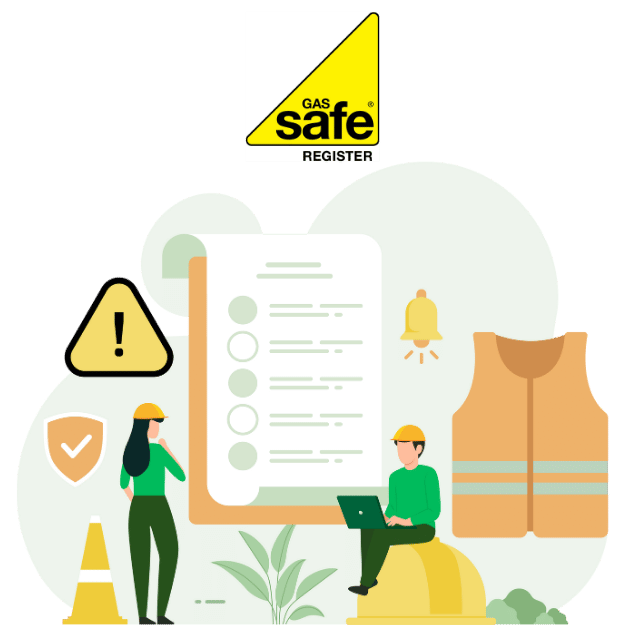
Choosing a registered Gas Safe engineer is vital for ensuring your gas safety inspection is conducted properly. The certification process mandates that engineers possess up-to-date qualifications and adhere to stringent safety regulations. We must select certified professionals who have a robust understanding of the specific systems in our properties.
When evaluating potential engineers, verifying their Gas Safe registration is important. This registration is legally required for anyone conducting gas work in the UK. It confirms that the engineer has undergone rigorous assessments and can perform the inspection safely and effectively.
Understanding the engineer’s qualifications involves reviewing their areas of expertise, such as domestic or commercial gas systems, to ensure they align with our needs. We should also inquire about their experience with similar properties and familiarity with the latest safety protocols.
Maintenance tips and guidelines on inspection frequency provided by the engineer can greatly enhance our property’s safety standards. Regular checks, as advised by a qualified engineer, can preempt major issues, guaranteeing compliance and safety of our gas installations.
Thus, selecting the right Gas Safe registered engineer is not just a regulatory formality but a vital measure to maintain the integrity and safety of our properties.
Gas is used in most homes for heating, cooking, and hot water but if not checked regularly, it can become dangerous. A small fault in a gas appliance can lead to gas leaks, carbon monoxide poisoning, or even fire and explosions.
That’s why domestic gas safety is so important. Regular checks by Gas Safe registered engineers help to:
✅ Prevent life-threatening gas leaks and carbon monoxide risks
✅ Keep your family, tenants, and property safe
✅ Meet legal safety standards (especially for landlords)
✅ Avoid costly repairs and emergency situations
In the UK, landlords must obtain a Domestic Gas Safety certificate to guarantee tenant safety and compliance with gas safety regulations. Failure to secure this certification can lead to severe penalties, including fines and possible prosecution. We’ll explore how these laws protect tenants and what landlords must do to adhere to these stringent requirements.
Confirming compliance with gas safety laws is vital for tenant protection, particularly regarding the legal necessity of obtaining a Domestic Gas Safety certificate. As tenants, it's important to understand your rights and your landlord's obligations under these regulations. We'll explore key aspects that safeguard tenant safety and guarantee legal compliance:
Understanding tenant rights and landlord responsibilities sets the stage for addressing the consequences of non-compliance with gas safety regulations. We must grasp the severity of penalties explained within this framework to guarantee adherence and avoid legal consequences.
Failure to comply with the requirement to maintain a valid Gas Safe certificate can lead to severe enforcement actions. These range from substantial financial penalties to potential criminal charges, depending on the gravity of the oversight or negligence. For instance, landlords may face fines up to £6,000 per offence. In cases where tenant safety is jeopardised, imprisonment could be a reality.
Furthermore, non-compliance exposes landlords to significant compliance risks, including the invalidation of property insurance. This risk note affects financial stability and calculates the ability to respond to a gas-related incident. Landlords must understand that these legal stipulations are not mere formalities but essential measures to safeguard tenant welfare and investment.
Guaranteeing compliance involves regular inspections, immediate repairs by certified professionals, and timely renewals of the Domestic Gas Safety certificate. We're committed to complying with these regulations and prioritising safety and legal integrity in property management.
As we explore the cost of obtaining a Domestic gas safety certificate in the UK, we must consider the average prices charged to landlords. Several factors influence these costs, including the size of the property and the number of gas appliances to be inspected. Understanding these variables will help you budget accurately for this mandatory safety compliance.
For many landlords in the UK, securing a Domestic gas safety certificate is a legal requirement that typically costs between £60 and £150, depending on various factors. Understanding the average costs of obtaining this certification is vital for effective budgeting and compliance with safety regulations.
Here are the key elements that impact the average prices:
Compliance with safety regulations to guarantee tenant safety isn't just ethical; it's mandated. Landlords must facilitate annual inspections, adhere strictly to inspection requirements, and maintain appliances to mitigate risks and potential legal repercussions.
The scope of the inspection can affect costs. A thorough check that includes multiple gas appliances and systems might lean towards the higher end of the typical price range. Each appliance checked guarantees higher safety and compliance standards.
Familiarity with and adherence to updated safety regulations are essential. Regulations may require specific types of inspections or frequency, which can influence landlords' annual financial commitment.
We encourage landlords to view these expenses as investments in tenant safety and legal compliance. Prioritising these aspects fosters a safer living environment and protects against legal liabilities.
Factors that affect the cost
To further explore the costs of obtaining a gas safety certificate in the UK, it’s important to consider several factors influencing the final price. These factors include certification requirements, inspection frequency, and regional pricing. Understanding the cost breakdown of market variations is also essential.
Factor | Description |
Certification Requirements | The complexity and scope of the inspection can vary based on the type of gas appliances and systems involved. |
Inspection Frequency | More frequent inspections may lead to a reduction in individual costs due to economies of scale. |
Regional Pricing | Costs can differ markedly across various regions due to local market conditions and availability of certified engineers. |
We need to reflect on how these elements affect the overall cost. For instance, a property with multiple gas appliances may require a more detailed examination than a property with fewer installations, impacting the cost. Additionally, engineers in high-demand areas might charge more due to market variations. Mastery of these factors will enable us to anticipate and manage the expenses associated with obtaining a gas safety certificate effectively.
What exactly does a gas safety check involve concerning your home appliances and systems? When we conduct these checks, we’re not just ticking boxes; we guarantee that each component of your gas system adheres to stringent safety regulations and compliance standards. Our focus extends beyond functionality to include thorough system maintenance, guaranteeing long-term appliance safety and operational reliability.
During a typical check, we’ll inspect several key areas:
Our inspection frequency is tailored to meet legal requirements and manufacturer guidelines, helping to maintain a safe and compliant home environment. Remember, regular checks are your best defence against potential gas safety hazards.
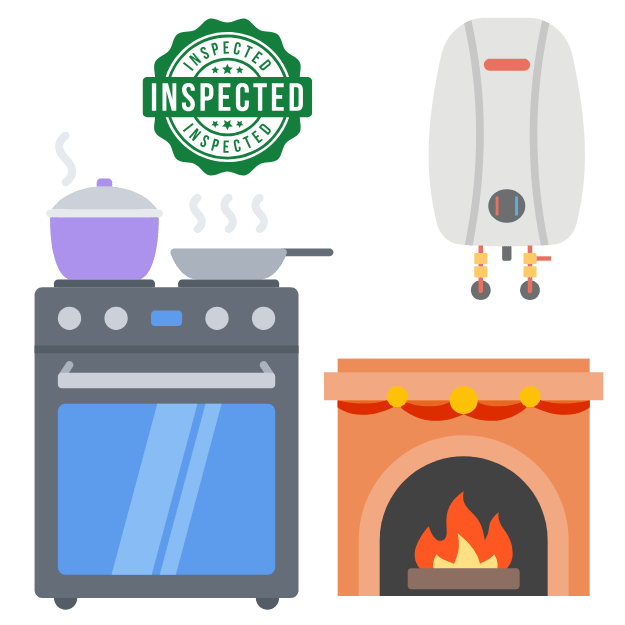

Landlords must renew their Domestic Gas Safety Certificates annually to comply with legal requirements. This routine is essential not only for legal compliance but also to guarantee that the safety and rights of tenants are upheld. Renewal, set at a 12-month frequency, aligns with the standard practices of inspection frequency and is a key component of landlord responsibilities.
To manage this process effectively, consider the following steps:
Utilise digital tools or calendar alerts to remind you about the upcoming certificate renewal needs. Staying ahead of the deadline prevents lapses and maintains continuous compliance.
Conduct annual inspections with a certified gas safety engineer. This practice meets legal requirements and reassures tenants about their safety, supporting a trustworthy landlord-tenant relationship.
Meticulously record all safety inspections and certificate renewals. These documents are essential for compliance checks and can be significant in legal situations, tenant rights, and safety disputes.
Frequently Asked Questions
We can obtain digital certificate options through an online request process; these certificates maintain their validity and allow for securely storing digital copies. Accessing previous certificates is streamlined, ensuring you master all technical aspects efficiently.
You must immediately address gas appliance maintenance if your property fails the safety check. Re-inspection is mandatory, and our legal obligations and tenant responsibilities will be clearly explained to guarantee compliance with safety standards.
Not all gas appliance types are covered under a single umbrella; each certificate's validity period and specific gas safety regulations dictate coverage. Landlords must understand their responsibilities and effectively safeguard tenant rights.
Gas safety is an important issue, and it's important that those who carry out gas safety inspections in UK are qualified to do so. The qualifications for a person carrying out gas safety inspection in the United Kingdom can be found on the Gas Safe Register.
The qualification required depends on whether you're inspecting domestic or non-domestic premises, with different standards applying to each type of premises
You will also need to have a knowledge of legislation relating to gas installation and use as well as technical competency relevant to your inspection activity.
If you want to find the local gas safe engineer near you than look nowhere else than Pro Checks.
We must understand the severe fines and penalties for non-compliance. Landlord responsibilities include adherence to legal consequences to protect tenant rights. Mastering these compliance regulations guarantees safety and avoids significant financial and legal repercussions.
We've seen that tenants can request independent gas safety checks to guarantee compliance with regulations. This proactive step reinforces tenant rights and landlord responsibilities, particularly during emergencies. It underscores the importance of maintaining safety standards.




